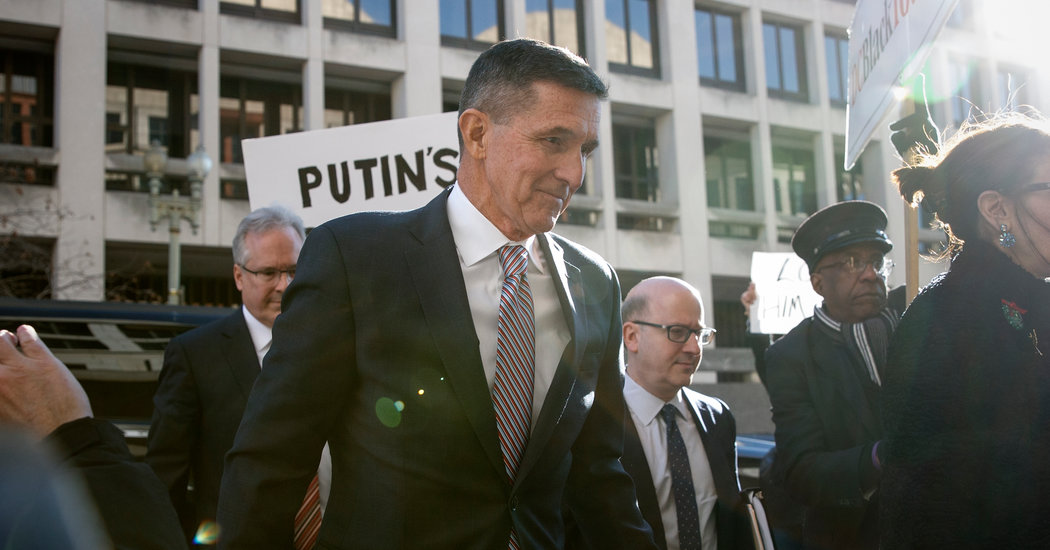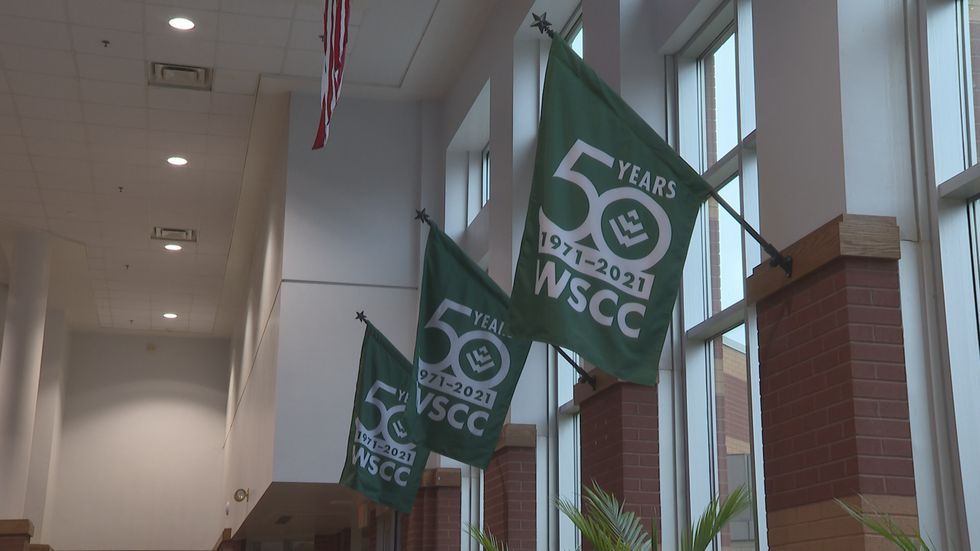WASHINGTON — A federal judge overseeing the criminal case of President Trump’s former national security adviser Michael T. Flynn opened the door late Tuesday for legal experts and other outside parties to oppose the Justice Department’s motion to drop the case, suggesting he has at least some skepticism about the government’s argument that Mr. Flynn should never have been charged.
In a brief order, Judge Emmet G. Sullivan of the United States District Court for the District of Columbia said he would set a schedule for outside parties to present arguments about the government’s request to dismiss the case. He did not directly address the Justice Department’s motion to drop the charge, but legal experts said he appeared open to considering not only the department’s arguments but also those who have challenged its move as politically motivated.
The judge’s order is the latest twist in a high-profile criminal case that has provoked widespread criticism of Attorney General William P. Barr and has renewed questions about political influence over the Justice Department. In an extraordinary move last week, federal prosecutors asked Judge Sullivan to throw out their case against Mr. Flynn for lying to F.B.I. agents, two and a half years after he pleaded guilty to a felony charge of making false statements to federal authorities.
None of the line prosecutors who worked on the case signed the motion, and one withdrew from the case. Mr. Trump has repeatedly called for Mr. Flynn’s exoneration, saying he was the victim of biased and vindictive F.B.I. agents.
Judge Sullivan has some limited discretion to decide whether to accept the Justice Department’s decision to abandon the case. In announcing his intention to consider briefs from outsiders, known as amicus curiae, or “friend of the court,” the judge raised fears among Mr. Flynn’s allies that he may not yet be in the clear.
“The judge can pretty much do anything he wants,” said Michael Ledeen, a historian and friend who co-wrote Mr. Flynn’s 2016 book “The Field of Fight.” Everyone in Mr. Flynn’s circle, he said, is waiting “till the judge rules.”
Mr. Flynn’s legal team immediately objected to Judge Sullivan’s decision. The lawyers were likely worried that the judge was inviting a wide-ranging, public discussion of whether the Justice Department was inventing legal arguments in order to help one of the president’s allies, legal experts said.
“This court has consistently — on twenty-four (24) previous occasions — summarily refused to permit any third party to inject themselves or their views into this case,” the defense said in a motion filed after the judge’s order. “Only the Department of Justice and the defense can be heard.”
The defense also sought to play down the potential contributions of outsiders. “Former prosecutors are all free to submit opinion pieces to assorted media outlets — as many have already done — but this court is not a forum for their alleged special interest,” Mr. Flynn’s lawyers wrote.
The case against Mr. Flynn was one of the first brought by the special counsel, Robert S. Mueller III, as part of his investigation of Russian interference in the 2016 election. It revolved around Mr. Flynn’s phone calls with Sergey I. Kislyak, then the Russian ambassador to the United States, in the weeks before Mr. Trump took office.
In an interview on Jan. 24, 2017, Mr. Flynn told F.B.I. agents that he had not advised Russia not to escalate a conflict over the Obama administration’s sanctions over its election interference. Nor, he said, had he asked Russia to try to hold up a United Nations resolution condemning Israel for settlements. Transcripts of his phone calls, picked up during routine American surveillance of Mr. Kislyak, showed that he had.
But after pleading guilty in December 2017 to lying to the agents, Mr. Flynn later tried to withdraw his plea, insisting that he was innocent and that he had confessed only because his lawyers advised him to.
Ultimately, Mr. Barr instigated a review of the prosecution, appointing Jeff Jensen, the United States attorney in St. Louis, to re-examine it, even though the case was being handled by the United States attorney for the District of Columbia.
Mr. Jensen found what he considered to be a series of mistakes and misjudgments by both F.B.I. agents and prosecutors, and he recommended that the case be dropped. In its motion filed last week, the Justice Department contended that the F.B.I. had essentially ginned up a pretext to interview Mr. Flynn in hopes of catching him in a lie.
The motion cited “frail and shifting justifications” for investigating Mr. Flynn, “irregular” procedures and the F.B.I. agents’ initial assessment that Mr. Flynn did not come across as deceitful in the interview.
“The government does not have a substantial federal interest in penalizing a defendant for a crime that it is not satisfied occurred and that it does not believe it can prove beyond a reasonable doubt,” the department said.
But its reversal raised serious questions about whether the Justice Department was treating Mr. Flynn differently from the hundreds of other defendants who are convicted each year of lying to federal authorities.
“The judge could be concerned this is cronyism,” said Nancy Gertner, a former federal judge who now teaches at Harvard Law School. “I would predict that he holds a hearing and has the prosecutors justify the decision they made.”
“When a defendant has gone all the way down the line to pleading guilty, the bar to dismiss has to be high,” she said.
She and other legal experts noted that in a hearing in late 2018 on his guilty plea, Mr. Flynn told the judge under oath that he was guilty. The government’s lawyers who were then in charge also insisted that the case was meritorious and grounded in evidence.
“It is no wonder that a judge would be skeptical, if not downright angry, and come to the conclusion that he had been misled, either at the outset, or now,” said Matthew J. Jacobs, a former federal prosecutor and now a partner at the law firm Vinson & Elkins.
Mark Mazzetti contributed reporting.


















Federal Judge Reggie Walton Condemned Trump’s Comments About Judge Juan Merchan On CNN